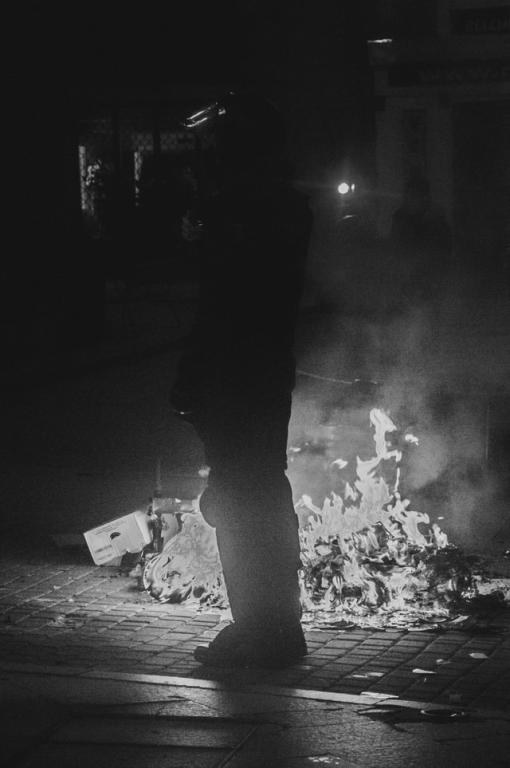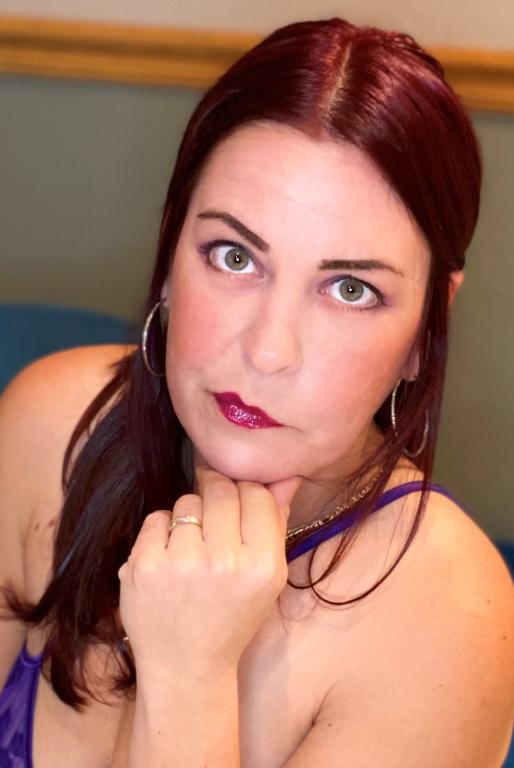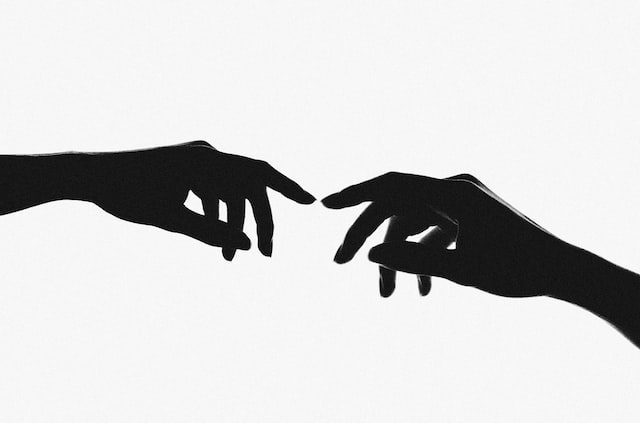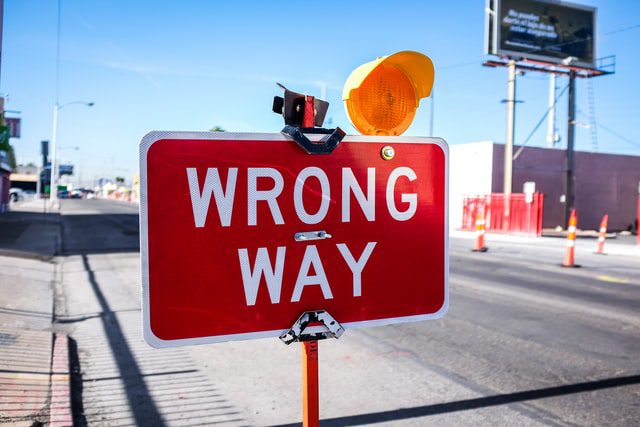
I’m lending credence to the idea that when there is unrest in the streets, there’s unrest in the sheets. And I have evaluated whether or not that also grants me the privilege to blame society for the disorder and sudden changes in my home. If only it were so easy to elect “society” the ultimate scapegoat for all my choices and decisions. I would never have to be accountable for my actions.
Someone else did it. It’s someone else’s fault. Society made me do it. I had no choice. It’s not my fault. I didn’t choose this life.
I could have a ready-made script typed up. I would eagerly present my relinquishment of responsibility rhetoric to every relationship I engage in. I would come up with a caveat of carefully crafted excuses for why I cannot be bothered with the idea of personal accountability, so don’t even try me.
But these narrow and negative notions erode our emotional intelligence, divide our relationships, and ultimately create a mental monologue monstrosity. Choosing to not accept responsibility or finding someone else to blame for the consequence doesn’t provide a solution and doesn’t demonstrate ownership of self. I want to understand why there is such a preferable proclivity, within this American society, to direct accountability away from self.
To some degree, pride has a lot to do with it. If we are confronted with the discovery that we might have been…wrong, our ego fights to protect our “dignity.” Contrary to popular belief, dignity cannot be compromised so easily. Having dignity has nothing to do with having all the answers or holding the “right” views. Dignity is a multi-dimensional conglomeration of attributes and characteristics that helped form the authentic and divine true self that you are.
However, when we discover that we may have been wrong about something, it makes us feel disconnected from the other. It makes us feel excluded. Maybe it even makes you feel alone or left out? Sometimes, when I am in the “wrong,” I feel dumb—like, “How did I miss that? Oh, sheesh!”
Change Course
With recent changes in my home, including my adult children (and grandson) moving back home, I have witnessed an uptick in scapegoat solutions. I have also noticed how much influence social issues have on personal conversations, both in the home and during social events. It seems like we are all slightly more activated and prepared to argue rather than simply absorb the presence of another with an open mind and heart.
I have spent a great deal of time within social media stratospheres these past few weeks, as many others have, thanks to so many events engaging the egos within. There’s a lot going on, isn’t there? Plentiful hot-button issues streaming live, 24 hours a day, and so many of us are unfortunately binge eating the junk. The same atmosphere exists within social media, we are all slightly more activated and prepared to argue rather than absorb from one another. Heck, we may even learn something new or expand our own perspective a little if we gave another perspective consideration?
More and more I see that people don’t want to align with other people. It’s obvious by the way we blame, defame, proclaim, and shame; that if you’re not on my side with this issue or against this idea, then you are just a horrible person and not worthy of conversation or consideration. It’s an astoundingly limiting view to hold. It holds you back from expanding your own perspective. Your view on life is so limited by your own proximity to others. If you refuse to receive input or feedback from those you disagree with, how can you grow or learn something new, or better than all of that, change your mind?
You’re not going to change the mind of others by blaming or shaming. It’s like the bully in the sandbox. She keeps punching the kids in the face and throwing sand in their eyes but wonders why they won’t play with her. You can’t get others to play with you if you just punch them in the face or throw sand in their eyes. You’re not going to get anyone to agree with you or align with you if you insult or attack them for not having the same exact views as you. And if you don’t care about explaining why your views are the “better” or “right” views, then why say anything at all? Why express an opinion if you aren’t willing to invite others to consider it?
I wonder, too, if we were able to all hold discussions with one another without freaking out because there are diverging views, what would we complain about? If we all aligned on the same issues, who would argue with us? Who would match our activated energy and mirror it, reflecting it all over? By the way, we talk to one another, I would say that no one really wants change or an end to all the suffering in the world. We just want to argue, be right, and blame others for all the woes.
Erotic Solution
I bet, though, that most of us don’t want to continue playing this game. I would rather bet on the notion that most of us want to break free from these silly cynical cycles of conflict and chaos. I found myself drowning in the division this past week. I reflected on the division within my home and outside of my home. There are so many reflections of the internal and the external that it’s as if society is mirroring my personal life. So, what can be learned from it? Is there a solution?
For me, eroticism is about touch energy. We begin animating this energy by getting in touch with ourselves, first.
If you are willing to put on your erotic thinking caps, there is a solution. But it requires a commitment to the self that must be honored. First and foremost, you must commit to regarding yourself as wholly worthy of this life. You were meant to be here.
Eroticism is centered on touch energy. The physicality/proximity of our connection. We begin animating this energy by getting in touch with ourselves. I write affirmations. “I am enough as I am.” “I am loved.” “I am love.” “I am capable.” “I am confident.” “I am sexy.” “I am beautiful.” “I am whole.” “I am healing.” “I am growing.” “I am courageous.” “I am secure.” “I am safe.” “I am grateful.” Rather than saying, “I want to be this, I want to change this, I want to begin this or start doing that…” I affirm that I am what I want to be. I accept me for me.
How we speak to ourselves influences how we speak to others. The amount of ownership we claim over our consciousness has a strong indicator of how open-minded we can be to receiving divergent critiques, opinions, or views from others. How well can you hold yourself accountable? It’s challenging to hold myself accountable if I don’t accept myself also.
If someone you don’t know made an allegation about your overall character, would you let it get to you? I mean, you and I both know full well that most of the negative interactions we have are with people who don’t know our full story, they just read one line from one page, and they built their own backstory and believed it, without ever checking to see if it was true. We know full well not to engage with others who are quick to assume or accuse, yet sometimes we do it anyway.
There are times, however, that people who do know our story confide in us and share concerns about what we said or did and want to find a resolution. Rather than opting to blame work, lack of eating, tiredness, or some other thing that happened in life that day, we listen with an open heart and mind. We then consider, genuinely, what has been expressed, and ask ourselves, “Is there truth to this? Am I behaving the way they say I am? Do I have a blind spot?”
This self-evaluation takes time. We ask the question, “Is it me?” but it may take hours, days, weeks, or even years before we really discover part of the answer. The brutal answer is that yes, you are the common denominator in your life. Everything begins and ends with you. Therefore, owning your choices, decisions, and even your emotions is important to developing a better relationship with yourself and others. When we are confronted with criticisms or concerns about our habits, we react defensively because we mistakenly attach our identity to the way we do things. But we can change the way we do things so that it better reflects who we really are.
The process requires practice, but ultimately, the result is increased responsiveness and decreased reactivity. As the process develops, we find ourselves less interested in matching the energy of the external world and more interested in igniting new energy that reflects who we truly are. This in turn provides a new lens on how we perceive the outside world.
I’m revisiting these practices this week. Seasons of change require adjustments, of course, but with all change, adaptability is important. The way that I can receive the “interruptions” of life says a lot about how I engage in my life. And although I may not intend to engage in life with hostility and contempt, sometimes I do. I am not immune to emotional disruption. But I am aware that I am the only one who can make me feel anything at all. And if that’s the case, I can just decide that life is amazing, and it will be.
















